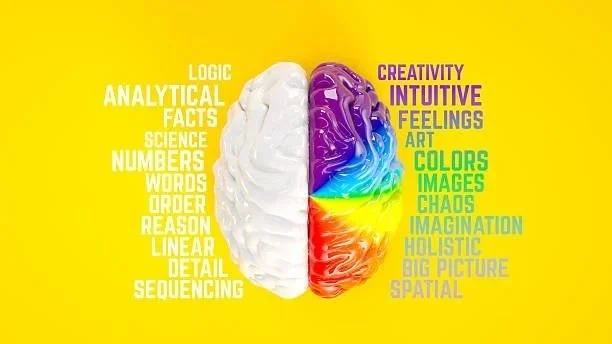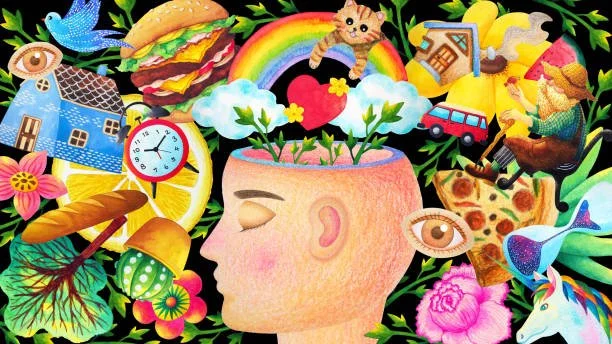How Cannabinoids support Healthy Brain Balance - By Leonard Leinow
From a wellness perspective, the two halves of the brain can be seen less as rivals and more as dance partners, each shaping a different dimension of human health. The left hemisphere is associated with linear logic which includes structure, language, analysis, and sequencing. It helps us plan meals, follow medication schedules, manage finances, and make sense of cause and effect. In wellness terms, it supports consistency, problem-solving, and the ability to translate intentions into daily habits.
The right hemisphere, by contrast, is commonly linked with emotion, intuition, imagery, creativity, and holistic perception. It allows us to sense how we feel in our bodies, read emotional cues, enjoy music and art, and experience meaning beyond words. From a wellness lens, this side nourishes emotional regulation, stress relief, connection, and joy.
Optimal well-being emerges when both halves are engaged and integrated. An overemphasis on the left can lead to rigidity, burnout, or disconnection from feelings. Leaning too heavily on the right may result in impulsivity or difficulty with follow-through. Practices like mindfulness, yoga, journaling, music, movement, and time in nature help bridge the hemispheres, weaving logic with intuition. Wellness, then, is not about choosing one side of the brain over the other, but cultivating a harmonious conversation between them, where clarity and compassion coexist.
Here is a link to Jill Bolte Taylor, PHD’s illuminating Podcast on the functioning of the Right side and left side of the brain:
https://www.youtube.com/watch?v=UyyjU8fzEYU
CBD and THC influence the brain in distinct ways, often affecting the left and right hemispheres differently. Primarily, the CB1 endocannabinoid receptors are active in the brain. THC, the psychoactive compound in cannabis, tends to activate the right hemisphere more prominently. This stimulation can enhance creativity, emotional awareness, and sensory perception, making colors brighter, music richer, and thoughts more fluid. It can also temporarily disrupt logical, sequential thinking, associated with the left hemisphere, which may make planning, decision-making, and verbal reasoning more challenging.
CBD, by contrast, has a calming, balancing effect across both hemispheres. It supports the left hemisphere by reducing anxiety that can interfere with analytical thinking and focus. Simultaneously, it soothes overactive right-hemisphere responses, promoting emotional regulation and stress resilience. Together, these compounds illustrate the brain’s duality: THC can spark imagination and feeling, while CBD tempers and integrates these experiences, supporting a state where creativity and clarity coexist. Thoughtful use can enhance wellness by harmonizing the hemispheres’ functions.
Synergy Wellness products with a 1:1 ratio CBD:THC, are on sale for 20% off. This includes #154, #155 & #156 tinctures and #353 1:1 vaporizer cartridge. These will work well to help balance the brain. Remember to titrate up slowly, starting with 7 drops.


